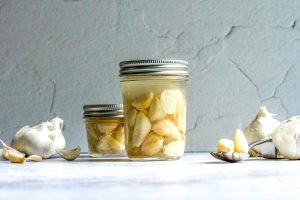Oral hygiene plays a vital role in maintaining our health, aside from the obvious dental benefits, poor dental hygeine can play host to a wide array of diseases in the body, not commonly discussed:
- Cardiovascular Health: Gum disease, also known as periodontal disease, has been associated with an increased risk of cardiovascular conditions. The bacteria present in gum disease can enter the bloodstream and contribute to the development of heart disease, clogged arteries, and an increased risk of heart attacks and strokes.
- Respiratory Infections: Poor oral health, particularly gum disease, can increase the risk of respiratory infections such as pneumonia. Bacteria from the oral cavity can be inhaled into the lungs, leading to infections or exacerbating existing respiratory conditions.
- Diabetes: Research suggests a bidirectional relationship between oral health and diabetes. Poor oral hygiene and gum disease can make it harder for individuals with diabetes to control their blood sugar levels. Conversely, uncontrolled diabetes can impair the body’s ability to fight infections, including gum disease, leading to worsening oral health.
- Pregnancy Complications: Pregnant individuals with poor oral health are at a higher risk of pregnancy complications. Gum disease has been linked to preterm birth, low birth weight, and gestational diabetes. It is crucial for pregnant individuals to maintain good oral hygiene to support their own health and the health of their developing baby.
- Digestive Disorders: Oral health problems can impact digestion and contribute to digestive disorders. Chewing difficulties due to tooth decay or missing teeth can lead to improper food breakdown, causing digestive discomfort and nutrient deficiencies.
- Joint Health: Some studies have suggested a potential link between poor oral health and certain joint conditions like rheumatoid arthritis. The inflammation associated with gum disease may exacerbate joint inflammation in individuals already susceptible to arthritis.
- Cognitive Health: Emerging research indicates a possible association between oral health and cognitive decline, including conditions like Alzheimer’s disease. The presence of gum disease and the associated chronic inflammation may contribute to cognitive impairments over time.
While mouth wash is touted as a great way to prevent tooth decay(as it is), oil pulling has gained attention as a traditional practice with very similar benefits, and in addition to being all natural, many are speaking from personal experience that religious dedication to the oil pulling protocol healed their cavities.
The Benefits of Oil Pulling
Multiple studies have looked into the benefits of oil pulling for oral health in recent years. One study published in the Journal of Clinical and Diagnostic Research (2017) found that oil pulling with sesame oil significantly reduced plaque and gingival indices when compared to a control group that practiced conventional mouth rinsing.
Another study published in the Nigerian Medical Journal (2015) compared the effects of oil pulling with coconut oil against chlorhexidine mouthwash and observed similar reductions in the levels of Streptococcus mutans, a bacteria associated with tooth decay. These findings suggest that oil pulling, particularly with sesame or coconut oil, can be an effective adjunct to conventional oral hygiene practices.
Anecdotal Support: While scientific literature provides valuable insights, anecdotal experiences can be a gateway into understanding things not yet investigated in science. Numerous accounts have stated that it can fix tooth decay (avoiding the need for drilling), and repair gum problems! While mouth wash can never claim such a thing as “fixing tooth decay”.
“Anecdotal evidence should of course be interpreted cautiously, but it is curious to ponder the idea.”
Oil Pulling Techniques
Oil pulling involves swishing oil in the mouth for a certain period, typically 10 to 20 minutes, before spitting it out. Here are a few common oil pulling techniques:
- Traditional Method:
- Take one tablespoon of the chosen oil (e.g., sesame or coconut oil).
- Swish the oil around the mouth, ensuring it reaches all areas, without gargling.
- Continue swishing for 10 to 20 minutes.
- Spit out the oil in a waste container (avoid spitting in sinks or drains).
- Rinse the mouth thoroughly with water and brush teeth as usual.
- Modified Technique:
- Start with a smaller amount of oil (e.g., one teaspoon) if 10 to 20 minutes feels too long initially.
- Gradually increase the swishing time as you become more comfortable with the practice.
- Follow the same steps as the traditional method.
Choosing the Right Oil: Sesame oil, often mentioned in Vedic scripture, has been widely used for oil pulling. Coconut oil, also known for its antimicrobial properties, has also garnered attention as an effective oil.
Vedic scripture offers glimpses into the practice of oil pulling through verses and quotes that emphasize the importance of oral hygiene and natural remedies. While these quotes do not provide detailed instructions, they provide cultural and historical context for the tradition of oil pulling in Vedic culture.
References:
- Asokan S, Emmadi P, Chamundeswari R. Effect of oil pulling on plaque induced gingivitis: A randomized, controlled, triple-blind study. J Clin Diagn Res. 2017;11(9):ZC08-ZC12.
- Peedikayil FC, Sreenivasan P, Narayanan A. Effect of coconut oil in plaque related gingivitis: A preliminary report. Niger Med J. 2015;56(2):143-147.







